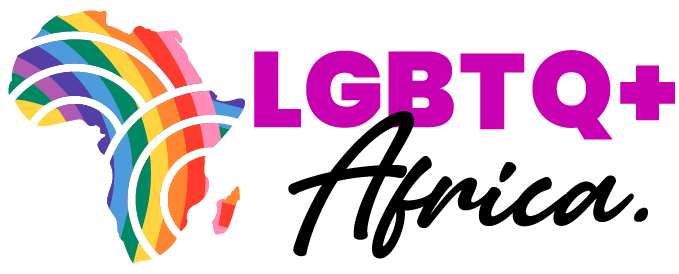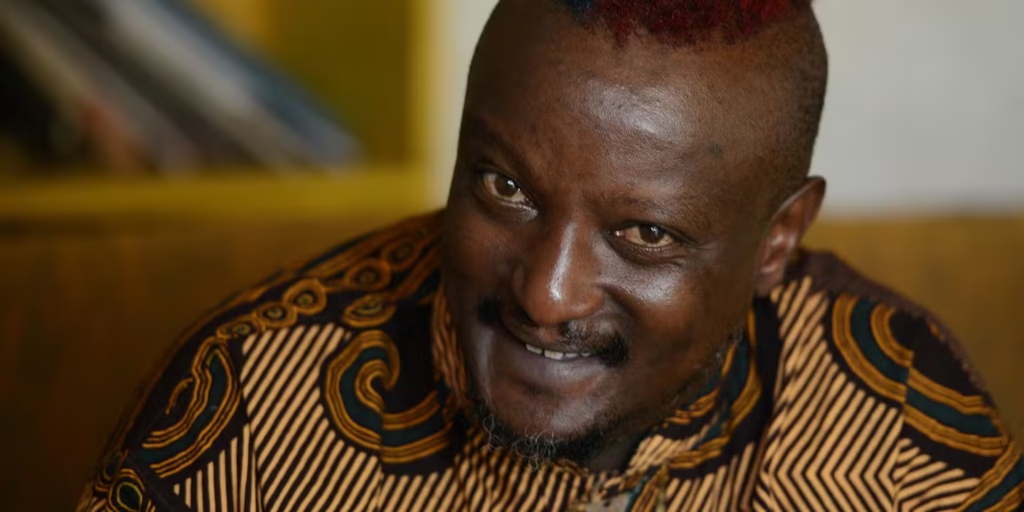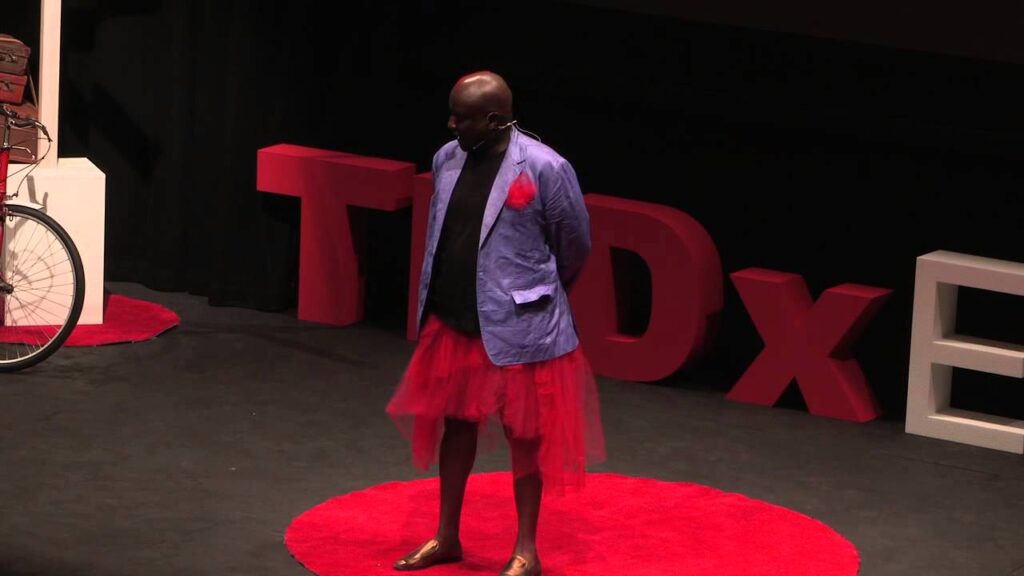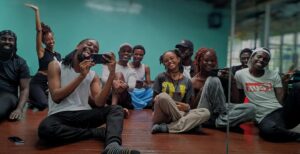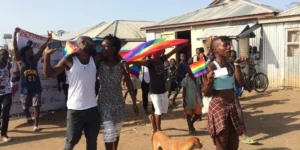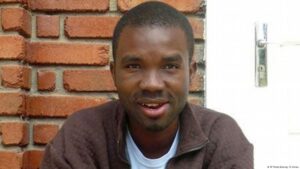Binyavanga Wainaina was a Kenyan author, journalist, and LGBTQ+ rights advocate whose work redefined African literature and challenged societal norms. Best known for his sharp wit, groundbreaking memoir One Day I Will Write About This Place, and his satirical essay “How to Write About Africa,” Wainaina used his platform to critique stereotypes, celebrate African identity, and advocate for LGBTQ+ rights. His public coming out in 2014 was a watershed moment for queer visibility in Africa, inspiring countless individuals to embrace their authentic selves.
Early Life and Background
Binyavanga Wainaina was born on January 18, 1971, in Nakuru, Kenya. He grew up in a middle-class family, with his father working as a businessman and his mother as a community development officer. Wainaina’s early years were marked by a love of storytelling and a keen awareness of the complexities of Kenyan society.
After completing his secondary education in Kenya, Wainaina moved to South Africa to study at the University of Transkei (now Walter Sisulu University). He later attended the University of East Anglia in the United Kingdom, where he earned a master’s degree in creative writing. These experiences shaped his unique voice as a writer and his commitment to telling African stories on his own terms.
Literary Career and Achievements
Binyavanga Wainaina’s literary career was marked by a fearless commitment to challenging stereotypes and celebrating African identity. His work spanned genres, including fiction, non-fiction, and satire, and earned him international acclaim.
- “How to Write About Africa” (2005): Wainaina’s satirical essay “How to Write About Africa” became a global sensation, critiquing the Western media’s portrayal of Africa as a monolithic, poverty-stricken continent. The essay, published in Granta, was both humorous and incisive, calling out clichés and challenging readers to rethink their assumptions about Africa. The essay remains one of Wainaina’s most famous works and a cornerstone of postcolonial literature.
- Founding Kwani: In 2003, Wainaina co-founded Kwani?, a literary magazine dedicated to showcasing African writers and stories. The magazine became a platform for emerging voices in African literature, publishing works by writers like Chimamanda Ngozi Adichie and Yvonne Adhiambo Owuor. Kwani played a pivotal role in revitalizing Kenya’s literary scene and fostering a new generation of African storytellers.
- Memoir: One Day I Will Write About This Place (2011) : Wainaina’s memoir, One Day I Will Write About This Place, is a deeply personal and lyrical exploration of his life, family, and identity. The book weaves together memories of his childhood in Kenya, his experiences abroad, and his journey as a writer. The memoir was widely praised for its originality and emotional depth, cementing Wainaina’s reputation as one of Africa’s most important literary voices.
- Caine Prize for African Writing: In 2002, Wainaina won the Caine Prize for African Writing for his short story “Discovering Home.” The award brought him international recognition and established him as a leading figure in African literature.
Coming Out and LGBTQ+ Advocacy
In 2014, Binyavanga Wainaina made headlines around the world when he publicly came out as gay in a piece titled “I Am a Homosexual, Mum.” The essay, published online, was a powerful and deeply personal declaration of his identity. Wainaina’s decision to come out was particularly significant given the hostile environment for LGBTQ+ individuals in Kenya and across Africa
The Impact of Coming Out
Wainaina’s coming out was a bold act of defiance against the stigma and discrimination faced by LGBTQ+ individuals in Africa. It sparked important conversations about queer rights and visibility, challenging the silence and shame that often surround homosexuality. His announcement was met with both support and backlash, reflecting the deep divisions within African societies on issues of sexuality and identity.
Advocacy for LGBTQ+ Rights
Following his coming out, Wainaina became a vocal advocate for LGBTQ+ rights in Africa. He used his platform to speak out against homophobia, challenge discriminatory laws, and support queer individuals. Wainaina’s activism was rooted in his belief that everyone deserves to live with dignity and freedom, regardless of their sexual orientation or gender identity.
Legacy and Impact
Binyavanga Wainaina’s legacy is one of creativity, courage, and unapologetic authenticity. His work as a writer and activist has had a profound impact on African literature and the fight for LGBTQ+ rights.
Redefining African Literature
Wainaina’s work challenged stereotypes and celebrated the diversity and complexity of African experiences. He inspired a new generation of writers to tell their own stories and reject the limitations imposed by others
Queer Visibility in Africa
Wainaina’s coming out was a watershed moment for queer visibility in Africa. His courage inspired countless LGBTQ+ individuals to embrace their identities and fight for their rights. His advocacy helped to shift the conversation around LGBTQ+ issues in Africa, paving the way for greater acceptance and understanding.
A Voice for the Marginalized
Throughout his life, Wainaina used his voice to advocate for the marginalized and oppressed. Whether through his writing or his activism, he remained committed to challenging injustice and celebrating humanity in all its forms.
Final Years and Death
In 2016, Binyavanga Wainaina suffered a stroke that left him partially paralyzed. Despite his health challenges, he continued to write and advocate for LGBTQ+ rights until his death on May 21, 2019, at the age of 48. His passing was mourned by writers, activists, and readers around the world, who celebrated his life and legacy
Conclusion
Binyavanga Wainaina was a literary giant and a trailblazer for LGBTQ+ rights in Africa. His work as a writer and activist challenged stereotypes, celebrated African identity, and advocated for the rights of queer individuals. Through his courage and creativity, Wainaina inspired countless people to embrace their authentic selves and fight for a more inclusive and equitable world.
As we remember Binyavanga Wainaina, we honor his legacy by continuing the work he began—telling our stories, challenging injustice, and celebrating the beauty and diversity of humanity. In his own words, “To be African is to be inspired by the world and to inspire the world.” Wainaina’s life and work embody this spirit, reminding us of the power of storytelling and the importance of living authentically.
